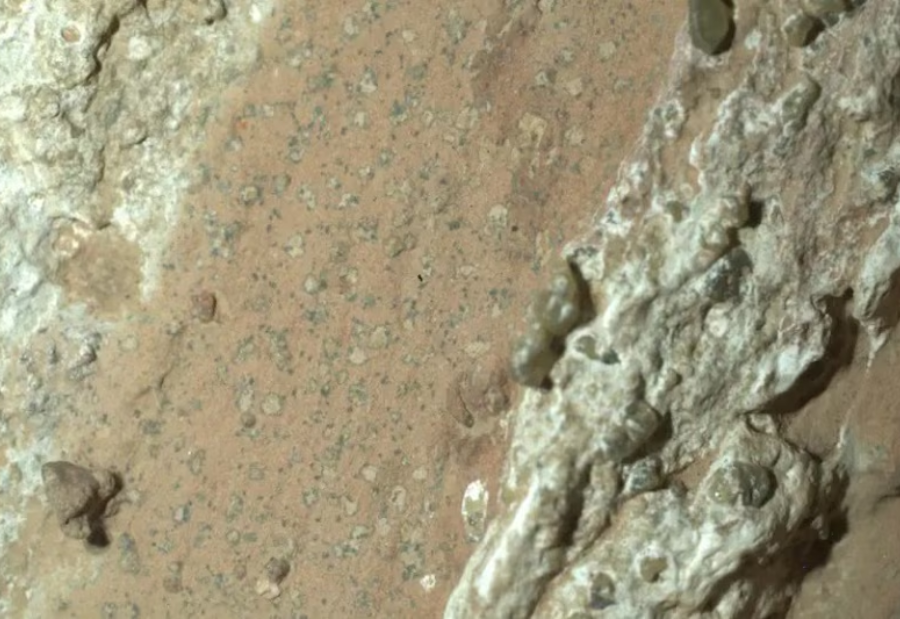NASA’s Perseverance rover has delivered one of the strongest clues yet that Mars may once have supported microbial life. A rock sample, nicknamed Sapphire Canyon, collected from an ancient riverbed in Jezero Crater, shows chemical signatures described as a potential biosignature, according to a peer-reviewed study published Wednesday in Nature.
The rock, officially called Cheyava Falls, was first examined in July 2024 as Perseverance explored the Bright Angel formation, a cluster of sedimentary outcrops in the Neretva Vallis. On Earth, similar clay- and silt-rich rocks are known to preserve traces of ancient life.
“This finding by Perseverance is the closest we have ever come to discovering life on Mars,” said acting NASA Administrator Sean Duffy. “The identification of a potential biosignature on Mars is a groundbreaking discovery, and one that will advance our understanding of Mars.”
What the rover found
Perseverance detected colorful “leopard spot” mineral patterns containing organic carbon, sulfur, phosphorus, and iron. Minerals such as vivianite (hydrated iron phosphate) and greigite (iron sulfide) were also identified on Mars. On Earth, these often form alongside microbial activity and decaying organic matter.
Lead author Joel Hurowitz of Stony Brook University explained, “These compounds could have been a rich source of energy for microbial metabolisms. But while the signatures are compelling, they require more investigation before we can confirm a biological origin.”
Though these minerals rock can also form without life, researchers found little evidence of the extreme conditions usually required for such abiotic processes, making a biological explanation more likely.
A younger surprise
The rock studied was younger than many earlier Martian samples, challenging assumptions that potential signs of life would only be preserved in the planet’s oldest formations. Scientists now believe Mars may have stayed habitable longer than previously thought.
Project scientist Katie Stack Morgan noted, “Astrobiological claims require extraordinary evidence. While abiotic explanations are still possible, publishing this as a potential biosignature marks a rigorous and significant step forward.”
Next steps
Perseverance has collected 27 rock cores since landing in 2021. NASA plans to bring some of these samples to Earth for deeper laboratory analysis. While not yet proof of life, the discovery marks a crucial step in answering humanity’s greatest question: Are we alone in the universe?
Also read: Viksit Workforce for a Viksit Bharat
Do Follow: The Mainstream formerly known as CIO News LinkedIn Account | The Mainstream formerly known as CIO News Facebook | The Mainstream formerly known as CIO News Youtube | The Mainstream formerly known as CIO News Twitter |The Mainstream formerly known as CIO News Whatsapp Channel | The Mainstream formerly known as CIO News Instagram
About us:
The Mainstream formerly known as CIO News is a premier platform dedicated to delivering latest news, updates, and insights from the tech industry. With its strong foundation of intellectual property and thought leadership, the platform is well-positioned to stay ahead of the curve and lead conversations about how technology shapes our world. From its early days as CIO News to its rebranding as The Mainstream on November 28, 2024, it has been expanding its global reach, targeting key markets in the Middle East & Africa, ASEAN, the USA, and the UK. The Mainstream is a vision to put technology at the center of every conversation, inspiring professionals and organizations to embrace the future of tech.




